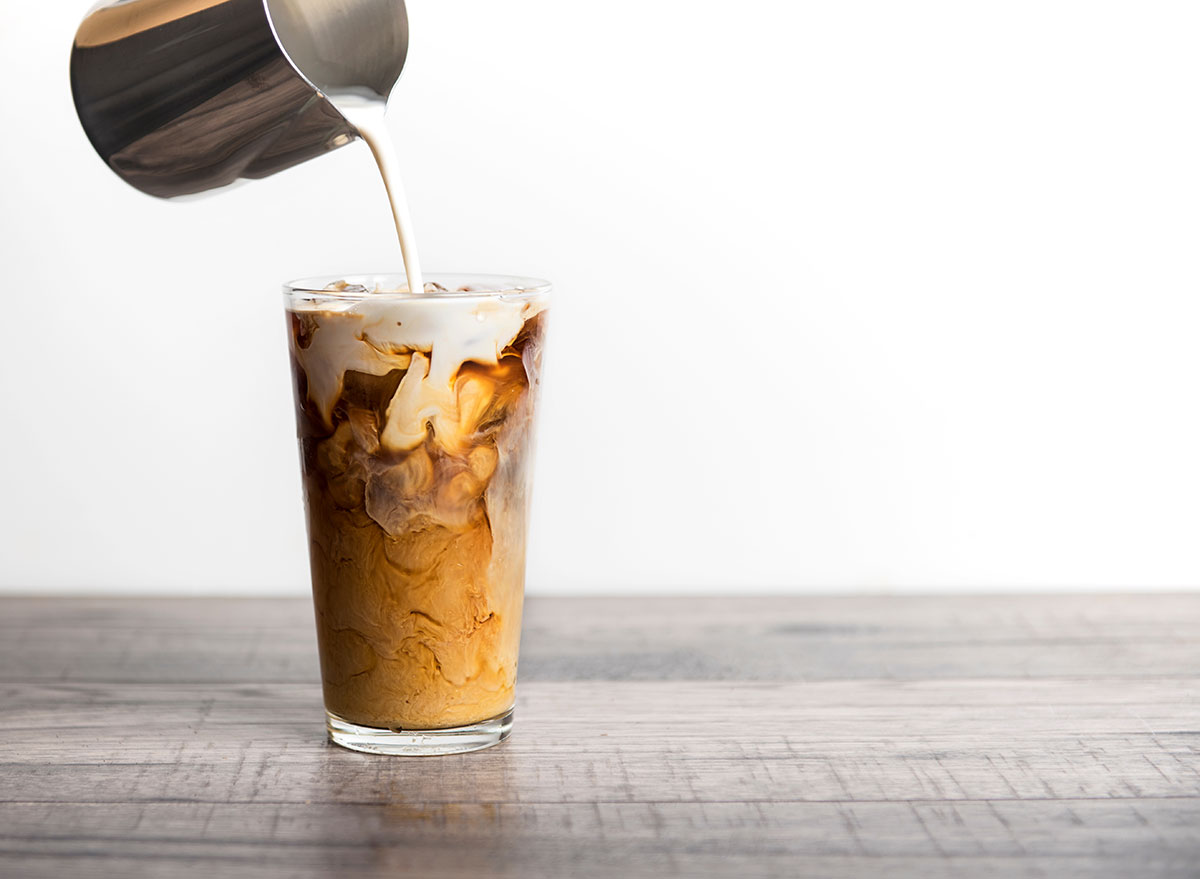Your Coffee Habit May Be Causing This Ugly Side Effect, Study Suggests

If you're someone who likes to toss back caffeinated beverage after caffeinated beverage, you may be starting to notice an uncomfortable side effect.
We'll preface this by saying most drinks are fine for you to consume in moderation, but, if you're drinking cups on top of cups of coffee, tea, and soda throughout the day, medical experts say, you could be seriously upping your risk of acid reflux and heartburn. (Related: The 7 Healthiest Foods to Eat Right Now.)
New guidelines suggested in a research letter published by JAMA recommend lifestyle changes that you can make to lower your risk of gastroesophageal reflux (GERD). GERD's main symptoms include acid reflux and heartburn, so hardcore coffee drinkers might want to scale back. The letter also suggests consuming no more than two cups of coffee, tea, or soda per day.
As the research letter's lead author, Raaj S. Mehta, MD, a gastroenterology fellow at the Massachusetts General Hospital (MGH) and Harvard Medical School, explains to Eat This, Not That!, "We decided on recommending no more than two cups per day of coffee, tea, or soda because in our prior study…we found that substitution of two cups per day of coffee, tea, or soda with two cups of water was associated with a modest reduction in risk of GERD symptoms."
But don't worry—there's no need to eliminate your morning cup of coffee altogether. Mehta adds, "Coffee, in particular, has many other health benefits, so these recommendations don't suggest that people have to give it up completely!" Just cutting back to a few cups should be enough to reduce your chances of experiencing heartburn.
"The mechanism by which coffee, tea, or soda may contribute to reflux symptoms may be related to caffeine, which may weaken the valve in the esophagus which prevents reflux of acid from the stomach," the study's senior author, Andrew T. Chan, MD, MPH of MGH, explains. "However, this is likely not the only option as even people who drink decaffeinated coffee seem to have a higher risk of reflux."
The letter's other recommendations for lifestyle changes to reduce GERD include engaging in at least 30 minutes of moderate-to-vigorous exercise daily, maintaining a "prudent" diet, and avoiding smoking. By making these behavioral changes, you can avoid the risks associated with turning to potentially dangerous medications to deal with the problem, Chan explains.
For more insight on which foods to nosh on (and stay away from) to avoid heartburn, check out these 28 Best and Worst Foods for Acid Reflux.








